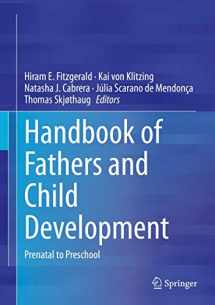
Handbook of Fathers and Child Development: Prenatal to Preschool
Book details
Summary
Description
This handbook provides a comprehensive review of the impact of fathers on child development from prenatal years to age five. It examines the effects of the father-child relationship on the child's neurobiological development; hormonal, emotional and behavioral regulatory systems; and on the systemic embodiment of experiences into the child's mental models of self, others, and self-other relationships. The volume reflects two perspectives guiding research with fathers: Identifying positive and negative factors that influence early childhood development, specifying child outcomes, and emphasizing cultural diversity in father involvement; and examining multifaceted, specific approaches to guide father research.
Key topics addressed include:- Direct assessment of father parenting (rather than through maternal reports).
- The effects of father presence (in contrast to father absence).
- The full diversity of father involvement.
- Father's impact on gender role differentiation.
- Father's role in triadic interactions of family dynamics.
- Father involvement in psychotherapeutic family interventions.
This handbook draws from converging perspectives about the role of fathers in very early child development, summarizes what is known, and, within each chapter, draws attention to the critical questions that need to be answered in coming decades.
The Handbook of Fathers and Child Development is a must-have resource for researchers, graduate students, and clinicians, therapists, and other professionals in infancy and early child development, social work, public health, developmental and clinical child psychology, pediatrics, family studies, neuroscience, juvenile justice, child and adolescent psychiatry, school and educational psychology, anthropology, sociology, and all interrelated disciplines.


We would LOVE it if you could help us and other readers by reviewing the book
Book review



